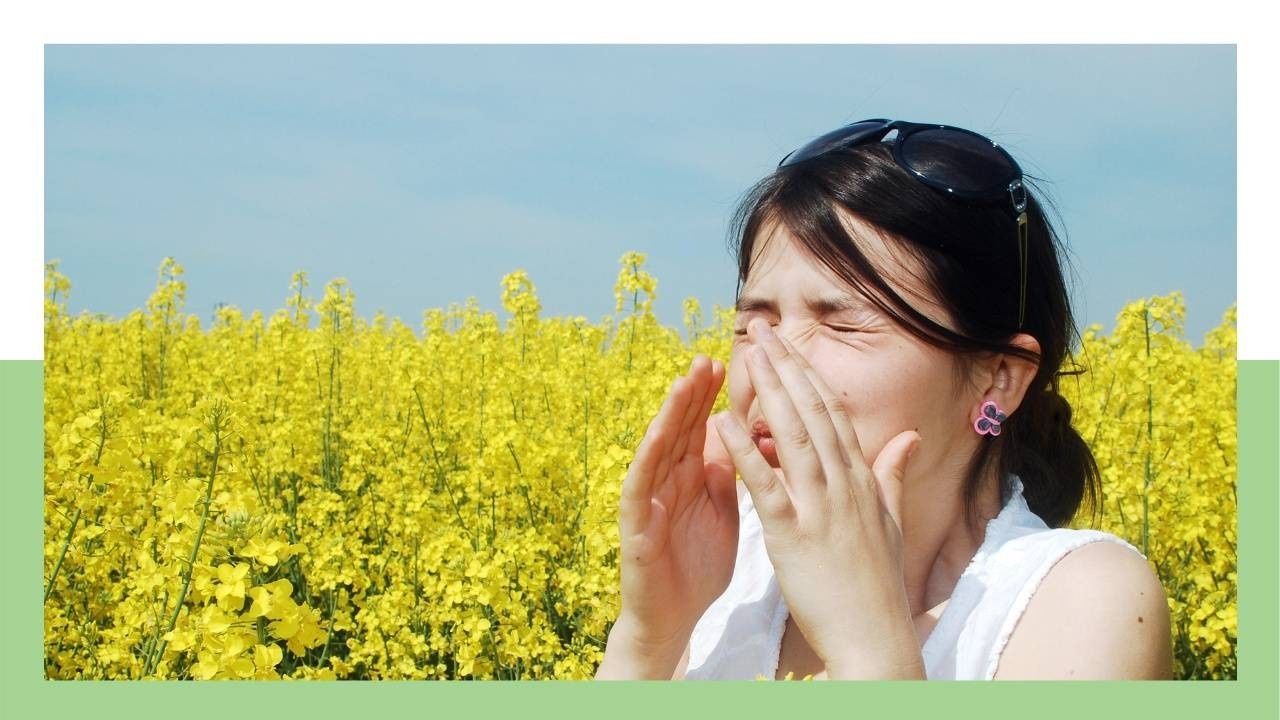Conquer Your Allergies This Season

Dreading allergy season? The sun and wind arrive and suddenly it’s itchy skin, red eyes, a runny nose, sneezing, sinus pressure, and headaches. Likewise, you may react to certain foods with hives, headaches, nasal congestion, skin problems, a racing heart, or irritability.
What is the common denominator in both scenarios? Histamines. While many people just give up and suffer, some natural compounds can bring relief. To understand why these natural remedies work, it’s helpful to understand a bit about histamines.
What are Histamines?
Histamine is a protein that causes inflammation, redness, and irritation. It is produced in response to environmental or dietary proteins known as antigens. When the antigen comes in contact with the body, the immune system registers it as an intruder and produces antibodies to it. These antibodies cause a release of histamine into your bloodstream, and those histamines can build up with repeated exposure and increase your sensitivity.
Histamines are found in many common foods, especially foods that are aged or fermented such as aged cheese, red wine, and sauerkraut. Histamines are also in foods such as eggs, some fruits and vegetables, and some seasonings.
The good news is that there are a number of natural ways to ease your suffering, whether it’s from seasonal allergies or high-histamine foods.
First, Lower Your Inflammation
Before looking at natural antihistamines, you must first address a foundational aspect of functional medicine--adopting a diet and lifestyle that lowers overall inflammation. This includes removing foods to which you are intolerant (gluten and dairy are the two most common), stabilizing your blood sugar, repairing intestinal permeability, managing low thyroid function and hormone imbalances, and addressing chronic stressors such as sleep deprivation, over-training, toxic exposures, junk food, and excess alcohol.
Quercetin — Nature’s Benadryl
Quercetin is a bioflavonoid with antioxidant, anti-inflammatory, and antihistamine properties. It also gives both short-term relief and long-term gut repair so you’re less susceptible to allergies. Quercetin is contained in abundance in apples, honey, raspberries, onions, red grapes, cherries, citrus fruits, and green leafy vegetables. Among vegetables and fruits, quercetin content is highest in onions.
Nettles
Nettle leaf is a natural antihistamine that naturally blocks histamine production. It can be made into a tincture or tea, but for allergy relief, capsules made from dried nettle leaves are the most effective option.
Butterbur
The European herb, butterbur, has been shown to rival leading OTC drugs in reducing histamine reactions. Its anti-inflammatory properties also reduce spasms in smooth muscle and relax swollen nasal membranes.
Mangosteen and Ginger
Mangosteen is a fruit extract that has been shown to reduce inflammation and inhibit histamine release. Ginger is a common and easily accessible medicinal plant that has been shown to inhibit histamine production. You can typically buy the root in the produce section of your local grocery market.
These are just a few of the many compounds effective in reducing histamine reactions. You can benefit from the synergistic effect of these compounds working together in product formulations that combine them.

